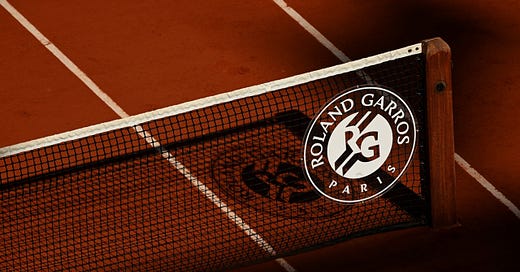Our economy demands certain behaviors from us as individuals. First, we must produce. Second, we must consume. Our system requires us to subsume any other needs or desires to those demanded by our roles as an input of labor. We must perform our primary economic function before taking “personal” time, before parenting, before taking care of our parents, before participating in our commmunity. And in order to prioritize growth, it also require us to accept the idea of non-satiety — that more consumption is always preferable, that there is and I am never enough.
These are not mistakes. Nothing’s broken. These are a feature of a system meant to maximize growth where efficiency and growth are moral goods. The inevitable product of the slow motion collapse of human progress under the weight of the industrialization of meaning. We have traded human and spiritual progress for technological advancement and economic growth.
In this society, achievement is good because it is necessary. The system rebels sometimes violently to anyone who might try to reframe their priorities but especially to someone high profile, high achieving who might call into question the assumptions and priorities that made them successful as a profound existential threat. Enter Naomi Osaka.
Naomi Osaka is one of the best tennis players in the world. She’s won the last two Grand Slam tournaments. She’s ranked #2 in the world. And through all of that climb and achievement she has openly struggled with anxiety and depression made worse by being required to engage with a hungry sports media machine. Here we see The Grand Slam tournaments (media properties who must have attention to make money in order to grow) threaten one of the best athletes in the world for not participating in the creation of more attention inventory for them to sell via required press conferences.
This conflict isn’t really about the failure to understand mental health. Osaka v The French Open is about power. The tournament will be quick to say that the media attention driven by television and that requires that athletes accept roles as media properties themselves is used to pay for the tournament and is passed on to the athlete in prize money. But the total prize purse for The French is only about 10% of the annual revenue, so even as winner Osaka would get less than one penny for every additional dollar she makes for the tournament. When she prioritizes playing (what the tournament is ostensibly about) and otherwise taking care of herself (which includes extensive social activism to address equity and justice), she is treated as an enemy. An enemy of a system the requires her continued participation as input first and human second.
What are our lives for? Who gets to decide? What if something other than our performance as an economic input of labor is more important? What is humanity and community came first? What if the economy were designed to support humanity rather than the reverse? Time to start asking these questions – and be grateful to Naomi Osaka for trailblazing a conversation we are desperate for.
Welcome to 7 Bridges — a conversation about the future of humanity and democracy in America. If you’re joining us for the first time, hello! Subscribe via the button below to get this in your inbox for free.
Please consider becoming a paid subscriber to support this work, too. Subscribing to 7 Bridges is the best way to keep it free and open to all — and to support new voices and independent media.




